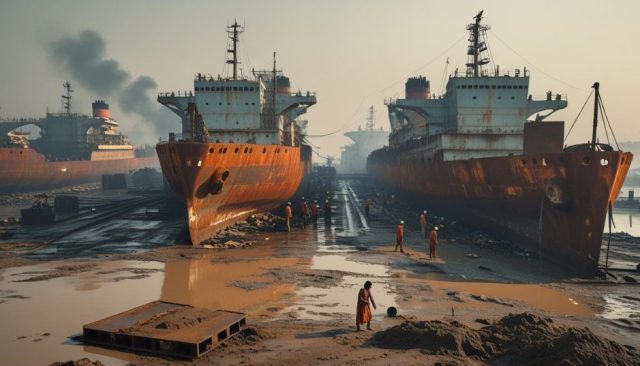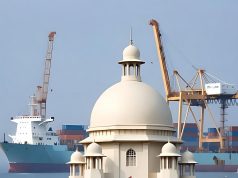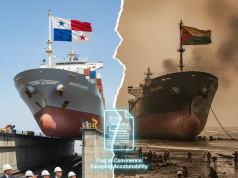From Kamrul Islam, Chattogram: The Hong Kong International Convention for the Safe and Environmentally Sound Recycling of Ships (HKC) officially comes into force today under the supervision of the International Maritime Organization (IMO). However, environmental groups like the NGO Shipbreaking Platform have voiced strong opposition, claiming that the convention legitimizes harmful practices rather than ensuring sustainability and safety.
According to the NGO, the convention lacks a clear roadmap for humane and sustainable ship recycling and instead gives legal cover to an industry notorious for its devastating impacts on both workers and ecosystems in developing countries.
Key Points of Contention:
One of the major criticisms is that the convention continues to permit the practice of beaching—a highly dangerous method of shipbreaking where end-of-life vessels are dismantled directly on tidal shores. This method is widely used in Bangladesh, India, and Pakistan, posing severe risks to laborers while contaminating coastal environments with hazardous substances.
Ingvild Jenssen, founder and director of NGO Shipbreaking Platform, stated:
“The convention serves the interests of shipping companies looking to cut costs by avoiding safe and responsible recycling. This is not a blueprint for a sustainable future—it’s a shield for negligence.”
Certification Does Not Equal Safety
More than a hundred beaching yards in India and Bangladesh have received “Statements of Compliance” from various international classification societies claiming adherence to HKC standards. Yet, many of these yards still lack basic waste management systems, medical facilities, or emergency response infrastructure. In one HKC-certified yard, seven workers died in an explosion in 2023.
Loopholes in Law Enforcement
The convention relies heavily on weak flag state control, allowing shipowners to easily reflag vessels and sell them for dismantling in South Asian beaching yards. Often, false documentation is used to declare vessels free of hazardous materials, when in reality, they may still contain asbestos, PCBs, and toxic heavy metals.
World Bank estimates suggest that between 2010 and 2030, Bangladesh alone will receive toxic waste from old ships amounting to 79,000 tons of asbestos, 240,000 tons of PCB-laden cables, and various ozone-depleting substances.
Bypassing the Basel Convention
Environmental advocates warn that the HKC may be used to undermine the stricter Basel Convention, which strictly regulates the export of hazardous waste to developing countries.
Signs of Responsible Action
Some companies are leading by example. Hapag-Lloyd, Höegh Autoliners, and Wallenius Wilhelmsen have pledged to abandon beaching and shift to dry-dock-based recycling methods. Petrobras is investing in building eco-yards in Brazil.
Despite the HKC now being in effect, it contains no mandatory criteria for “safe and just” recycling, leaving South Asian coastlines vulnerable to ongoing worker fatalities and ecological degradation.
Environmentalists insist, “Beaching must be banned. We need prohibitions, not legitimization.”
👉 Read the full story and share your thoughts in the comments below.
🔁 Share this to raise awareness about responsible ship recycling.
📢 Join the conversation: Should beaching be banned once and for all?
📍 Follow us for more in-depth environmental reports.











